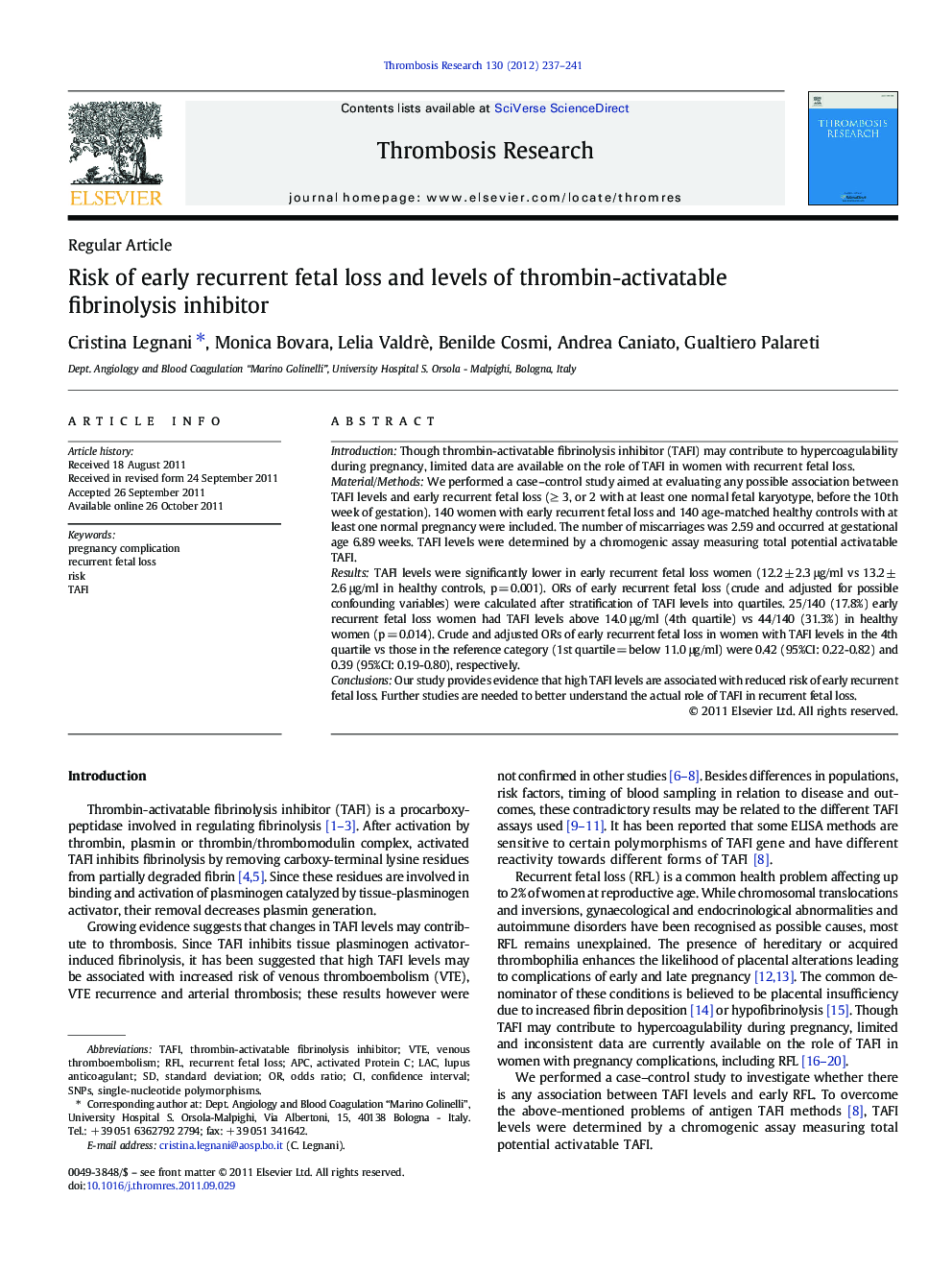| Article ID | Journal | Published Year | Pages | File Type |
|---|---|---|---|---|
| 6003475 | Thrombosis Research | 2012 | 5 Pages |
IntroductionThough thrombin-activatable fibrinolysis inhibitor (TAFI) may contribute to hypercoagulability during pregnancy, limited data are available on the role of TAFI in women with recurrent fetal loss.Material/MethodsWe performed a case-control study aimed at evaluating any possible association between TAFI levels and early recurrent fetal loss (⥠3, or 2 with at least one normal fetal karyotype, before the 10th week of gestation). 140 women with early recurrent fetal loss and 140 age-matched healthy controls with at least one normal pregnancy were included. The number of miscarriages was 2.59 and occurred at gestational age 6.89 weeks. TAFI levels were determined by a chromogenic assay measuring total potential activatable TAFI.ResultsTAFI levels were significantly lower in early recurrent fetal loss women (12.2 ± 2.3 μg/ml vs 13.2 ± 2.6 μg/ml in healthy controls, p = 0.001). ORs of early recurrent fetal loss (crude and adjusted for possible confounding variables) were calculated after stratification of TAFI levels into quartiles. 25/140 (17.8%) early recurrent fetal loss women had TAFI levels above 14.0 μg/ml (4th quartile) vs 44/140 (31.3%) in healthy women (p = 0.014). Crude and adjusted ORs of early recurrent fetal loss in women with TAFI levels in the 4th quartile vs those in the reference category (1st quartile = below 11.0 μg/ml) were 0.42 (95%CI: 0.22-0.82) and 0.39 (95%CI: 0.19-0.80), respectively.ConclusionsOur study provides evidence that high TAFI levels are associated with reduced risk of early recurrent fetal loss. Further studies are needed to better understand the actual role of TAFI in recurrent fetal loss.
